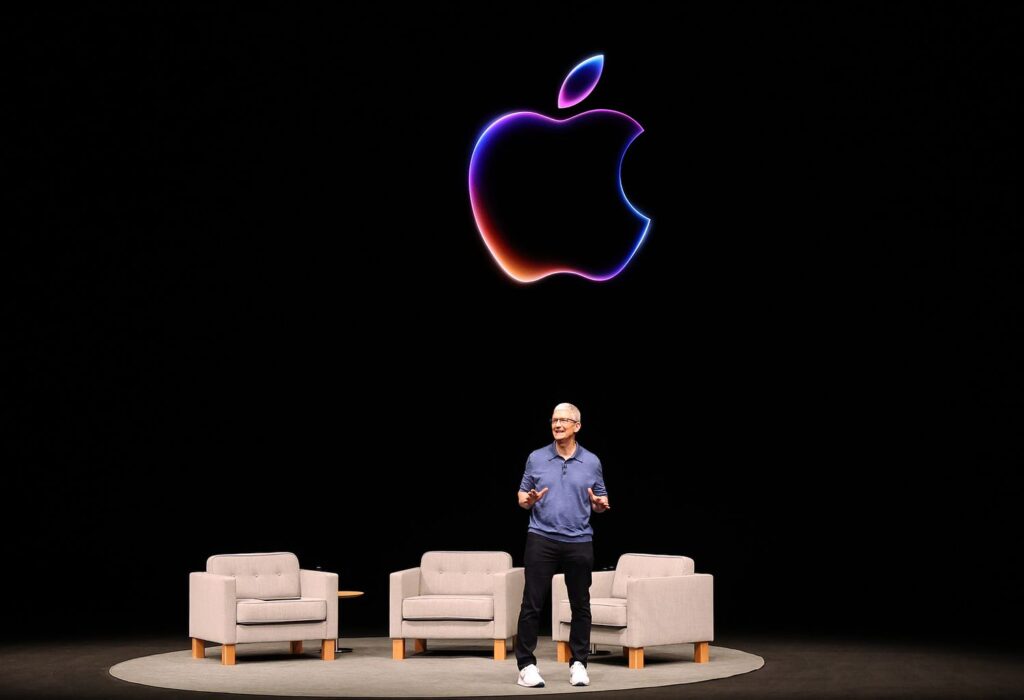The Chinese smartphone market, a once-unassailable bastion for global tech giants, is undergoing a dramatic transformation. Recent data paints a stark picture: foreign smartphone brands, including Apple, are experiencing a significant decline in sales. This isn’t a mere blip on the radar; it’s a trend that’s been building for some time, driven by a complex interplay of geopolitical tensions, resurgent domestic competition, and evolving consumer preferences.
For Apple, the world’s most valuable company, the implications are particularly profound. The company has enjoyed considerable success in China for years, but recent months have seen a persistent downturn. This isn’t just about fluctuating sales figures; it’s about a fundamental shift in the market landscape that demands careful analysis.
A Four-Month Slide: Apple’s Waning Fortunes
Official data reveals a concerning trend: iPhone sales in China have now declined for four consecutive months. This isn’t an isolated incident affecting only Apple; it’s part of a broader decline in the performance of all non-Chinese smartphone brands. The numbers are striking: shipments of foreign-branded smartphones have plummeted by a staggering 47% year-on-year. This sharp decline underscores the challenges foreign companies face in navigating the increasingly complex Chinese market.
This downturn has even prompted Apple to take the unusual step of offering discounts on its latest iPhone models in China. This move, while aimed at stimulating sales, signals the severity of the situation. Historically, Apple has been reluctant to engage in aggressive discounting, preferring to maintain its premium brand image. The fact that they are now resorting to this tactic speaks volumes about the pressures they are facing.
The Huawei Factor: A Resurgence of Domestic Competition
One of the key factors contributing to Apple’s struggles is the remarkable resurgence of Huawei. After facing significant challenges due to US sanctions, Huawei has made a stunning comeback, once again establishing itself as a formidable competitor in the premium smartphone segment.
For a period, Apple enjoyed a relative advantage due to restrictions on the export of 5G chips to China, which hampered Huawei’s ability to compete effectively. However, Huawei’s ability to secure 5G chips in 2023 has leveled the playing field, reigniting the competition between the two tech giants. This renewed competition has undoubtedly put pressure on Apple’s market share.
Geopolitics and National Pride: A Shifting Consumer Landscape
The dynamics of the Chinese smartphone market are not solely driven by technological advancements and product features. Geopolitical factors and rising national pride also play a significant role. The trade war between the US and China, which began in 2019, has had a lasting impact on consumer sentiment.
There’s a growing sense of national pride among Chinese consumers, leading to increased support for domestic brands. Some reports even suggest that using an iPhone in China is now viewed as less desirable by certain segments of the population. This shift in consumer perception, coupled with the “Boycott Apple” movement, further complicates Apple’s efforts to maintain its market position.
Beyond Apple: A Wider Trend of Decline
The challenges faced by Apple are not unique to the company. The data clearly indicates a broader decline in the sales of all foreign smartphone brands in China. This suggests that the issues at play are systemic, impacting all international players in the market.
The significant drop in shipments of foreign-branded smartphones – 47.4% in November alone – underscores the magnitude of the challenge. This downward trend, which has persisted for several months, indicates a fundamental shift in the Chinese smartphone market.
Looking Ahead: Navigating a Complex Landscape
The Chinese smartphone market is evolving rapidly, presenting significant challenges for foreign companies. Apple and other international players must adapt to this changing landscape to remain competitive. This requires a nuanced understanding of the factors at play, including geopolitical dynamics, evolving consumer preferences, and the resurgence of domestic competition.
The future of Apple and other foreign smartphone brands in China hinges on their ability to navigate these complex challenges effectively. This may involve revisiting their marketing strategies, strengthening their relationships with local partners, and demonstrating a deeper understanding of the Chinese consumer. The shifting sands of the Chinese smartphone market demand a proactive and adaptable approach to ensure continued success.
